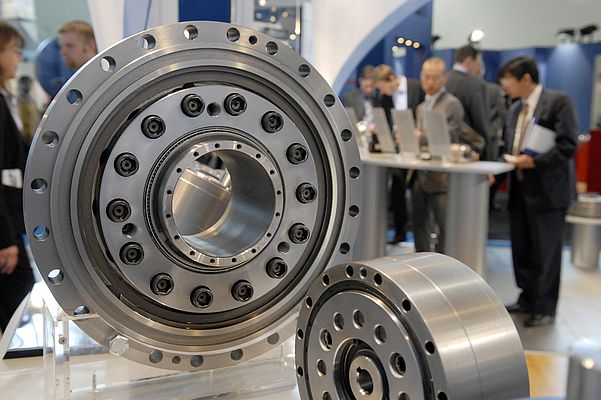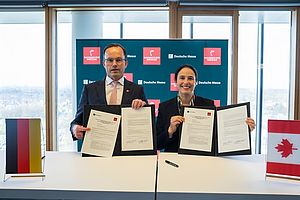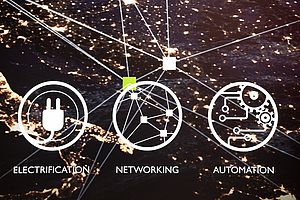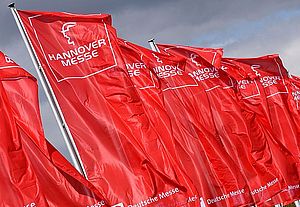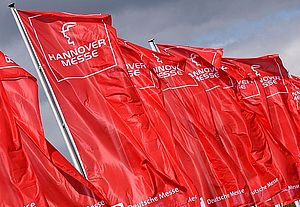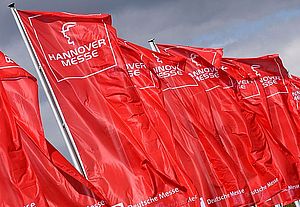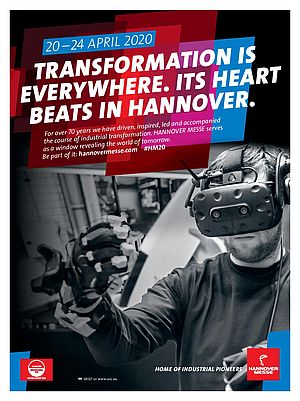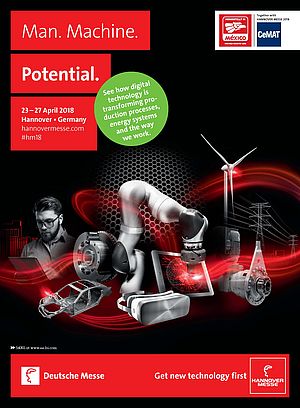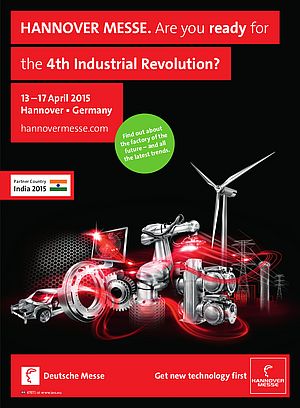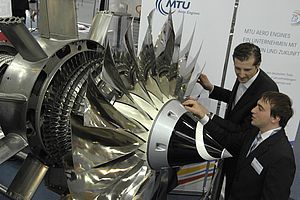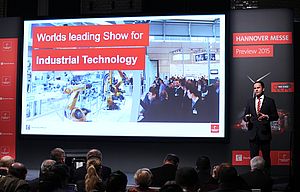Improved availability and scheduled servicing are crucial for the cost-efficiency of machines and plants. And, at this year's Hannover Messe (the Hannover Fair, 20 - 24 April 2009), the show-within-a-show ''Condition Monitoring Systems'' (CMS) will be revealing exactly how companies can achieve both.
''Condition monitoring is becoming a mass-market process,'' declares Peter Michael Synek, project manager at the German Engineering Federation (VDMA) and joint organizer of ''CMS''. And that is the key message for mechanical and plant engineering firms aiming to sharpen their competitive edge. Undoubtedly, such companies can benefit hugely from working closely with manufacturers in the electrical and mechanical drive technology, hydraulics, pneumatics and compressed air technology sectors. Indeed, this type of collaboration delivers high-tech solutions that are both competitive in their own right and help companies raise their game. In the future, these solutions will be joined by ''early warning systems'' that can help businesses avoid damage and downtime and raise availability while keeping total cost of ownership (TCO) low.
Condition monitoring for everyone
That is why Deutsche Messe has located ''Condition Monitoring Systems'' in Hall 24, at the heart of the ''Motion, Drive and Automation'' (MDA) fair. Companies will be using this special display to showcase every aspect of comprehensive machine and plant monitoring. And to enhance an already impressive program even further, the presentations in the MDA Forum will provide visitors with the perfect opportunity to find out how cutting-edge CM systems can be used in mass-market applications. The MDA Forum will be staged within the 1,000 square meter display space of the CMS show in Hall 24.
One key area of condition monitoring is vibration analysis. And DESCH Antriebstechnik, for example, will be using CMS to demonstrate the versatility of this technology and the positive influence it has on the service life of machines and plants, the lower service costs it delivers and, last but not least, its economic benefits for process optimization.
Vibration analysis helps optimize machines and processes
Take, for example, an aluminum processing plant that has implemented continuous vibration measurement to help improve processes. It can use the vibration pattern to calculate the precise moment when its product is at risk of deteriorating in quality. ''The company can use this knowledge to plan maintenance work and therefore obtain a perfect balance between costs and product quality,'' explains Synek.
As is always the case with potentially complex systems, it is important that the operator on the ground obtains a clear picture of how things stand, with complex analysis work being left to the experts. In Hall 24, Desch will be showing just how easy it is to perform analyses and how diverse its range has become. Under the slogan ''Anyone can operate plant monitoring systems'', visitors can discover what condition monitoring can do for a manufacturer of transmissions, couplings and complete press drive systems.
Professional foundation laying
Vibration analysis is also used in detailed surveys that are carried out prior to the laying of foundations. The measurement results help experts to identify where foundations might need to be reinforced, where vibration absorbers can help reduce resonance and where exceptionally strong fixing points need to be implemented.
Low-cost check-up for bearings
The most common causes of engine and transmission damage are problems associated with bearings. Either alignment is not quite right or imbalances result in greater stress on the bearings. Either problem reduces the service life of these crucial components. However, identifying bearing damage does not need to be a major undertaking - it can be done in just half an hour. An appropriate measurement process can directly indicate the location and extent of damage. Low-cost sensors are also now available that can be set up around at-risk areas to permanently monitor the condition of the bearings. These too will be on showat CMS in Hall 24.
Online monitoring prevents the problem of costly and unavailable spare parts
In his work, Synek has found that ''online monitoring systems are on the up''. This trend is of course aided by the fact that wireless communication has become the norm for so many modern technologies. Consequently, CM systems can be used over large areas without creating huge added costs and teleservice is visibly on the rise.
It is a worst-case scenario for so many companies - a complete overnight failure leaves them in desperate need of an unavailable machine part. But continuous monitoring systems offer a solution, helping to dramatically reduce the risk of such a predicament by is using an early warning about impending failure.
Synek adds further weight to the case for such systems: ''Special spare parts have extremely long delivery and manufacturing times. Anyone who thinks they can get hold of anything at a moment's notice on the global market should take care to ensure that their new spare parts match the quality of the OEM's original component.'' Failure to take such precautions can make a bad situation even more costly.



